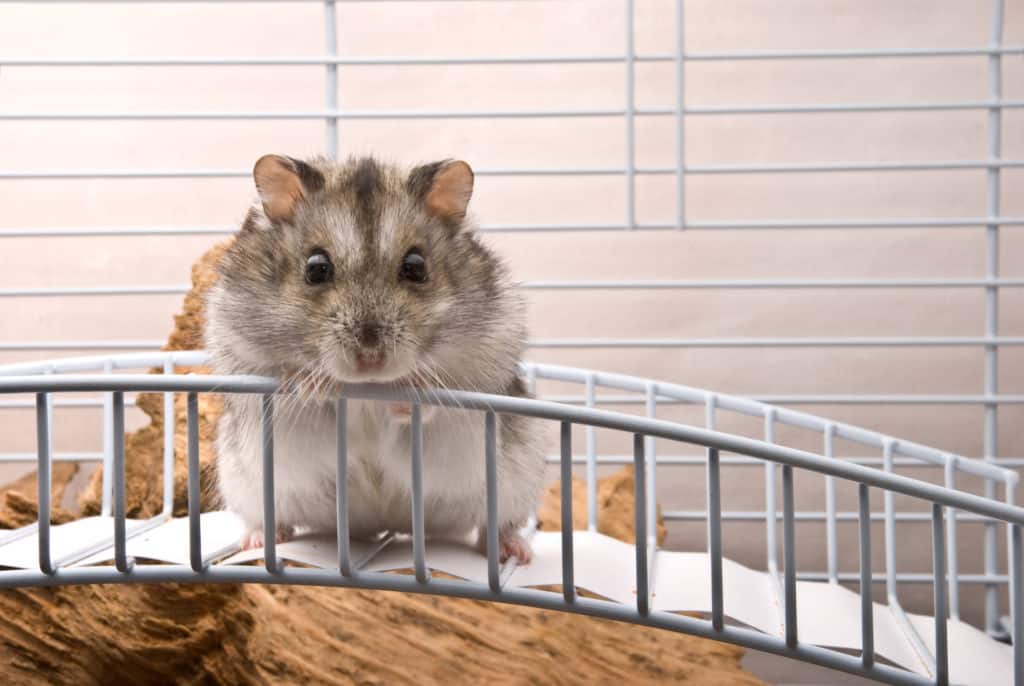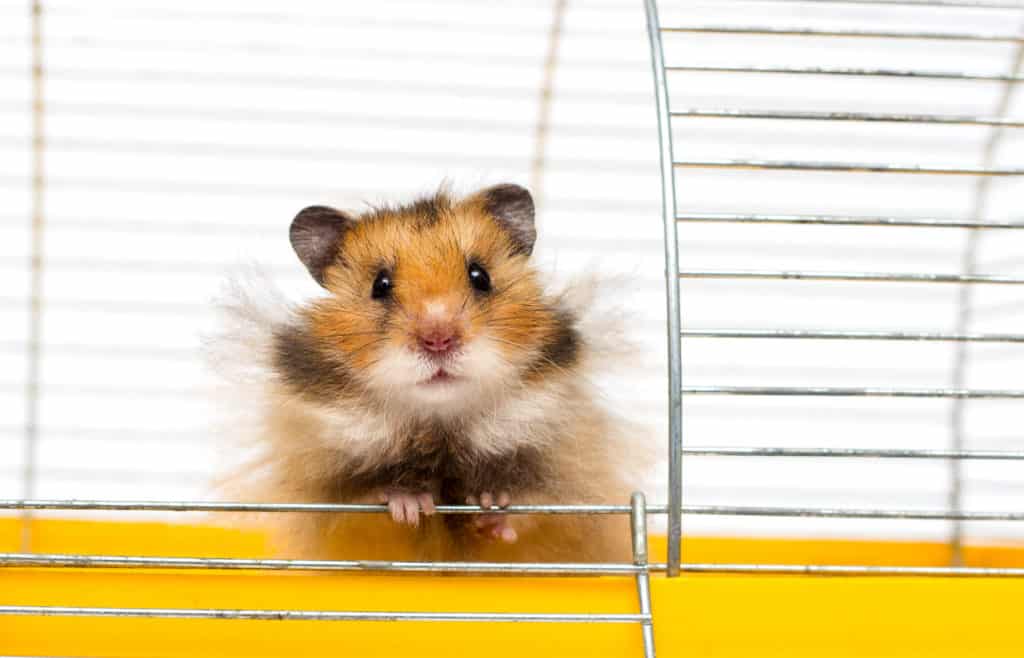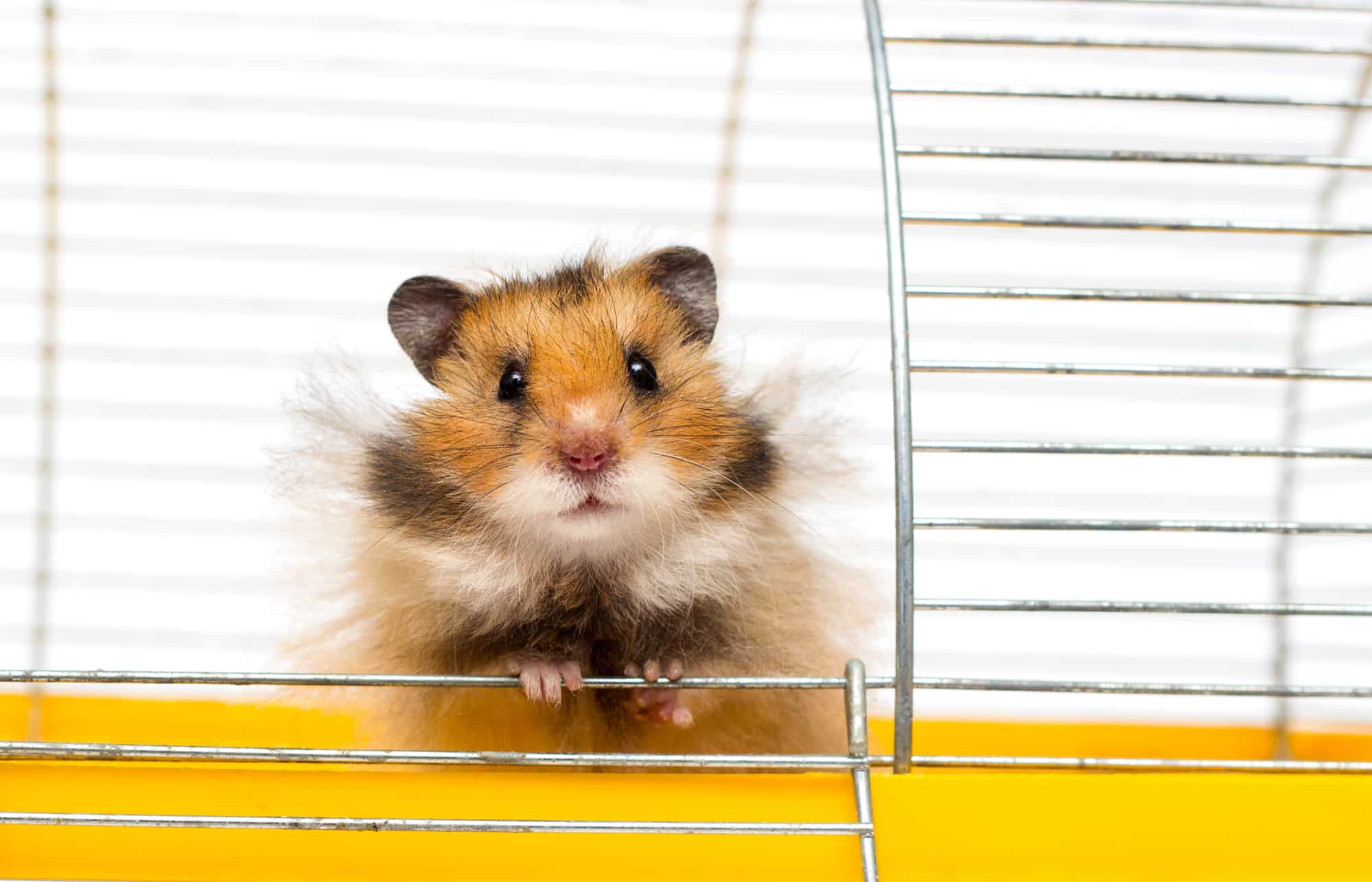Sometimes, when you are walking through a street, you can smell the food inside the restaurant even before the restaurant comes into view. Similarly, if you are walking through a forest and an animal’s carcass is near your path, you can smell its stench before you even see it. Just like human beings, hamsters can smell these too.
But a human being’s sense of smell is not strong enough. So, even though our noses can help us recognize something before our eyes can see it, the scent has to be very strong. But a hamster’s sense of smell is several times better than a human’s. So, he can smell even fainter smells which are much farther away.
In this blog post, let’s find out how good a hamster’s sense of smell is, what he uses his extraordinary sense of smell for, and how to prevent doing things that can affect his sense of smell.
Why does a hamster have a good sense of smell?
Wild hamsters live in hot arid areas, where days are hot and nights are cold. Unlike a human’s body, a hamster’s body cannot regulate temperatures very well. Moreover, many predators are active during midday and/or at midnight. Therefore, going out during the day or at night to forage food would reduce a hamster’s chances of survival.
So, hamsters spend most of their day- and nighttimes in their burrows. They come out only during dusk and dawn, when the temperatures are neither hot nor cold, and when it is neither bright nor dark. Moreover, most predators would have either gone to sleep or only just woken up at this time. Thus, spending most of the day and night in their burrows helps wild hamsters survive.
But since they spend most of their time in dark tunnels under the earth’s surface, having good eyesight doesn’t help. Instead, they need their other senses – sound, smell, and touch – to find their way in and out of these tunnels. Therefore, evolution has made their other senses strong while making their eyesight terrible. This is why hamsters have a good sense of smell.
How good is a hamster’s sense of smell?
Hamsters rely heavily on their sense of smell. Their noses can catch scents that are up to 30 meters away (Source: Hamster guru).
In the wild, hamsters use their sense of smell to search for food. The smell of a predator, carried away by the wind, can reveal its location to a hamster and help him take timely evasive action. But what happens if a hamster ventures too far from his burrow? How will he find his way back to his burrow without good eyesight?
There are scent glands on the bodies of hamsters (more about this in a later section of this blog post). So, when a hamster rubs his body against an object, like a tree or a stone, it leaves scent traces behind. He can then use his excellent sense of smell to follow this trail and find his way back to his burrow. Thus, his incredible sense of smell and his scent glands prevent him from getting lost. A hamster can also use his scent glands to mark his territory and his mates. Female hamsters use them to identify their babies as well.
So, if they didn’t have such a good sense of smell, wild hamsters would not be able to survive, because they will neither be able to find food, nor be able to detect predators. Moreover, they will also get lost because they will not be able to find their way back to their burrows.
Pet hamsters are descended from wild hamsters. So, they, too, have an excellent sense of smell. Hence, they can smell food items when you open the fridge, particularly if a food item has a strong smell. They can also find their favorite food items even if you bury them under other food items or hide them in their cage.

Can hamsters smell each other?
Pheromones are chemicals produced by an individual, which change the behavior of another individual of the same species (Source: Medical News Today). Most animals, including hamsters, produce pheromones.
In Syrian hamsters, for example, pheromones are present in their urine, feces, saliva, vaginal secretions, Harderian glands (located behind the eyeball), ear glands, flank glands, and glands on their feet (Source: Oxford Academic – Journal of Mammology). Among these, Syrian hamsters use the smell of the pheromones from urine, feces, vaginal secretions, ear glands, and flank glands to distinguish between different individuals. Moreover, the pheromones from saliva, urine, feces, vaginal secretions, ear glands, flank glands, and Harderian glands also contain information about the sex of the individual.
So, yes, if you have two hamsters in the same room, they can smell each other. They will also know which sex the other hamster belongs to.
But what happens if a hamster smells another hamster in the same room?
Hamsters, especially Syrian hamsters, are highly solitary and territorial animals. So, they don’t like it if there are other members of the same species in their territory. Even more so, if that other member is in a different cage and they can’t fight and kick him out of their territory. Hence, they may become annoyed and stressed, which can eventually affect their health.
So, you cannot keep two hamsters in the same room. But can you keep another pet in the same room as your hamster?
Can hamsters smell dogs? Can hamsters smell other pets?
If you have another pet in the same room, like a dog, your hamster may not be able to see him. He may not be able to hear him either if your dog doesn’t make a sound. But he will still be able to smell your dog.
So, if you have a dog in the same room, it might still stress your hamster out. After all, dogs are predators that eat hamsters. So, sensing a predator close to him at all times might scare your hamster and stress him out. This can prove detrimental to your hamster’s health.
So, if you have another pet, try to keep him in another room.
If you have two hamsters, placing them in two cages in the same room may not be enough. You will have to put them in separate rooms as well. This way, each of your hamsters can live safe knowing that his territory is his own.
But wait a minute! If your hamster can recognize the scent of another hamster, or another pet for that matter, can’t he recognize you too?
Can your hamster recognize you from your smell?
Every human has a unique odor (Source: Live Science). So, your hamster will be able to recognize you from your smell alone. But just because he smells and recognizes you, it doesn’t mean he trusts you. Even though you are his owner and provide him food every day, you might still be just another predator to him, for all you know. So, he might tolerate you but may not like you. He might even get scared of you.
But nobody wants that. Every pet owner only wants to develop a special bond with their pet. But since hamsters may develop such special bonds with, maybe, up to three humans in their entire lifetime, it is not easy to create that bond.
So, if you want to develop that special bond, you have to first make your hamster trust you. To do that, every time you try to hold him, approach him slowly from the front. If you do that, he would be not only able to smell you but also be able to see your hand properly. Don’t talk loudly or shout near him. Talk softly in the same tone of voice to him, every time. Doing so will help him get used to you.
If you do that regularly, your hamster will start recognizing you by your smell and your voice. Then, he will soon start standing on his hind legs, listening and intently smelling every time you enter the room. He will know that you are there and would need your attention because he likes it or even craves it.
What smells do hamsters not like? What smells can overwhelm them?
As we just discussed before, hamsters have a strong sense of smell. So, even a faint bad smell or a foul-smelling scent, which doesn’t bother humans much, can greatly disturb a hamster. Therefore, hamster owners should be careful in what they bring near a hamster’s cage. The following smells can be overwhelming for hamsters:
- Perfumes and body sprays
- Air fresheners and room sprays
- Pest repelling sprays like cockroach sprays
- Oils and candles that can improve the odor in the room
- The smell of citrus fruits like lemon, orange, etc.
Moreover, don’t pick your hamster immediately after having your meal. If your hands smell of the food you just ate, your hamster might think of it as food and try to bite you. So, wash your hands properly before holding your hamster. But don’t use a handwash or soap with a strong smell to wash your hands. Even the smell of a handwash can be overwhelming for your pet hamster. Moreover, if your handwash has a fruit smell, your hamster might think that your hand is a fruit and try to bite you. Therefore, use an antibacterial handwash that is as odorless as possible.
As a general rule of thumb, if you can smell something, regardless of whether it stinks or not, it can be overwhelming for your hamster. So, if you are cooking or eating something that smells great, never do it in the room where your hamster is.
If you can smell it, your hamster can smell it too. And if he smells it, he would want to eat it. So, he will start chewing the cage bars trying to get out of the cage and reach that tasty food. And once he gets into the habit of biting cage bars, you would have a very hard time trying to stop him from doing that again (Source: My first hamster). So, keep your tasty food in another room.
How can you keep your hamster’s nose healthy?
Have you ever noticed that when you catch a cold, your ability to smell decreases? It is the same with hamsters as well. If they catch a cold, their ability to smell will be affected. But unlike humans, for whom smell is not the most important sense, for hamsters, it is the most important sense, and if they catch a cold, they will be deprived of it, albeit temporarily.
But how bad can it be for hamsters?
If catching a cold can make you blind for three days, wouldn’t you do everything to prevent that from happening? That is how your hamster feels when he catches a cold. A lot of signals from his habitat would be blocked because of the cold. So, you should try your best to prevent your hamster from catching a cold.
- To start with, you can clean your hamster’s room regularly and keep it free of dust. And not just the room, but the hamster cage and anything you give to your hamster for playing, like hamster toys, hamsters ball, etc., should be free of dust. Even if you have just bought them from the store, if they are dirty, clean them with a wet cloth or wash them (and dry them) before giving them to your hamster. Dust can make your hamster not only catch a cold but also develop lung problems. After all, hamsters have sensitive noses. So, make sure everything around them is clean and free of dust.
- Secondly, regulate the room’s temperature to the right amount. Most hamster breeds come from arid regions. Hence, the optimum living temperature for them is 18 to 24°C. So, try to maintain your room’s temperature within this range.
- Use a HEPA filter, if necessary. A HEPA filter can keep the room dust-free (Source: The United States Environmental Protection Agency).
- Finally, make sure that your hamster’s bedding doesn’t smell. Some people buy scented bedding to mask the smell that your hamster might give off. But scents contain artificial chemicals that can cause respiratory problems for your hamster. So, never use scented bedding. Instead, clean your hamster’s cage regularly.
Is your hamster bedding safe and odorless?
The best bedding to use is wood shavings. But wood shavings are made in the same place as sawdust. Hence, they may contain dust. Therefore, you have to ensure that it is dust-free before you use it as bedding.
Aspen wood shavings are the best bet for your hamster because they are safe. Never buy pine or cedar shavings because they are not only sharp and can hurt your hamster but can also cause bronchial irritation (Source: Pawtracks).
You can use paper litter as bedding as well. But make sure that the paper is ink-free because inks can be toxic. Also, remember that paper can get smelly quickly. So, you must regularly replace them.
You can also opt for hay, which doubles up as bedding and food for your hamster.
Do you want to find out more about hamsters? Check out our hamster guide.
Summary – Key Takeaways
Hamsters don’t have good eyesight. So, they use their other senses, especially smell, for everything.
Hamsters’ sense of smell is very strong when compared to humans. So, they can smell even fainter smells from much farther away. Therefore, even smells that don’t bother humans can overwhelm a hamster. To avoid overwhelming your hamster’s smelling sense, avoid using the following products near your hamster:
- Perfumes and body sprays
- Air fresheners and room sprays
- Pest repelling sprays like cockroach sprays
- Oils and candles that can improve the odor in the room
- Citrus fruits like lemon, orange, etc.
Moreover, since smell is a hamster’s primary sense, even a small disruption in this sense can greatly confuse a hamster. So, a cold can greatly annoy and confuse a hamster. Therefore, take the following measure to prevent your hamster from catching a cold:
- Keep the room and your hamster’s accessories dust-free.
- Keep the room temperature between 18°C and 24°C.
- Use an air filter, if necessary.
- Choose dust-free bedding for your hamster.



